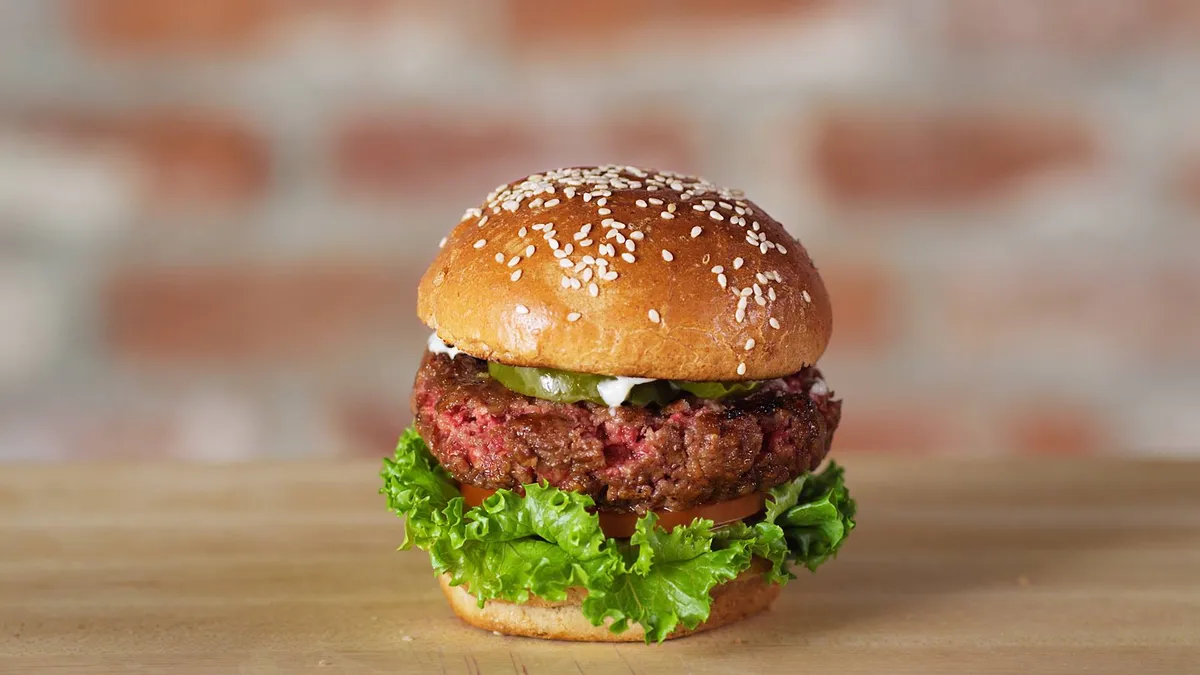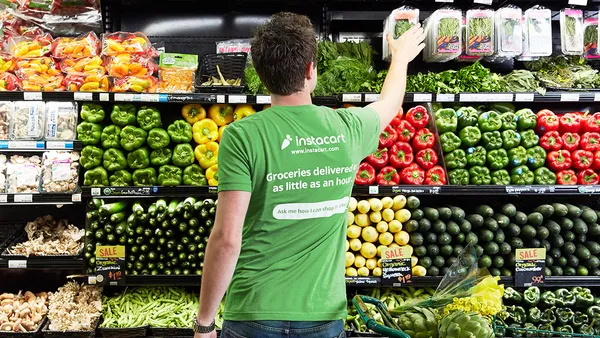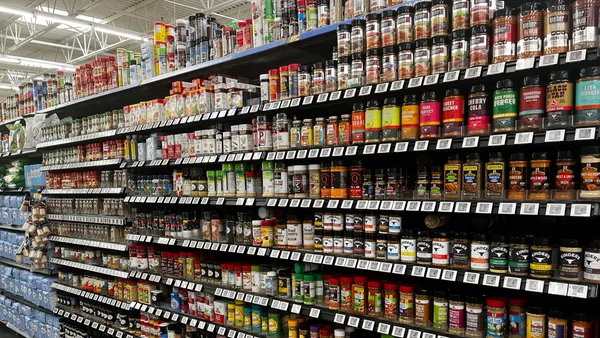Dive Brief:
- Impossible Foods will begin selling its plant-based Impossible Burger in U.S. grocery stores next year, according to a press release from the company. The company said the move was "in response to overwhelming demand."
- The company hasn't provided any additional details about this retail launch. But the move into retail will add to the approximately 5,000 restaurants in all 50 states where the Impossible Burger is currently available — a huge jump from about 50 restaurants a year ago. In addition, the company said the product will be featured chain-wide starting Nov. 12 at Dog Haus Biergarten and Hurricane Grill & Wings outlets.
- "By far the No. 1 message from fans on social media is, 'When will I be able to buy and cook the Impossible Burger at home?'" Impossible Foods' CEO and founder Patrick Brown said in the release. "We can’t wait until home chefs experience the magic and delight of the first plant-based meat that actually cooks and tastes like meat from animals — without any compromise."
Dive Insight:
Since its debut in 2016, the plant-based "burger that bleeds" has only been available in restaurants — a strategy that may have enhanced the hype over the product. But it hasn't been quite as visible as its competitor, the Beyond Burger, which has been sold in refrigerated retail meat cases since 2016 and is now in 10,000 grocery stores and more than 10,000 food service locations, according to Food Navigator.
Still, choosing to introduce the Impossible Burger through restaurants helped Impossible Foods scale up production while ramping up marketing outreach. Since July 2016, the company has sold 13 million burgers via restaurant partnerships. And when the California-based company opened a production plant in Oakland in September 2017 capable of turning out 500,000 pounds of the product each month, speculation also ramped up that retail availability couldn't be far behind.
It's hard to put a tangible value on that kind of buzz, but it certainly hasn't hurt the company as its audience increased along with the anticipation. Retail outlets planning to stock the Impossible Burger could also benefit from more consumers coming in to shop and see if the product has arrived yet. Additionally, some home cooks are likely itching to prepare the burger their own way rather than have it served to them at a restaurant.
Because of the new Oakland facility — which added a second shift this summer, according to Meat + Poultry — Impossible Foods may be in a better position to avoid the out-of-stock pitfalls Beyond Meat experienced earlier this year when demand put too much strain on existing production of the Beyond Burger. No manufacturer benefits from signing supply contracts and not being able to deliver on them.
The timing for Impossible Foods' retail move looks favorable. According to data from Nielsen and the Plant Based Foods Association, sales of plant-based foods jumped 20% in the past year to more than $3.3 billion. Plant-based meat alternatives totaled $670 million in sales — which was a 24% jump compared to 6% in 2017.
The company hasn't yet said anything about its intended price point for the Impossible Burger once it hits retail shelves — or, more likely, refrigerated meat displays — but it will need to be competitive with other plant-based burgers in order to attract meat eaters as well as vegans and vegetarians.
Company CEO and founder Patrick Brown has emphasized from the start that he's aiming for the mass market. Impossible Foods' COO David Lee told Food Navigator that the company commissioned a survey late last year to find out who was ordering the Impossible Burger.
"The overwhelming majority of people who buy the burger (about 70%) are regular meat eaters," Lee said.
Once the Impossible Burger is available at retail, the company may turn its attention to other plant-based products. It should have sufficient funding to do so since investors have put a total of $387.5 million into the company over seven rounds, according to Crunchbase. Those investors include Bill Gates, Google Ventures, Khosla Ventures, Viking Global Investors, Trinity Capital Investment, UBS, Horizons Ventures, GV, Temasek Holdings and Sailing Capital.
Brown said at a Redwood City press briefing last fall that the company's mission is to apply its patented technologies to making faux chicken, lamb, pork, fish and perhaps milk, eggs and cheese. Once the burgers hit the market, these other products could quickly follow.
"We want to completely replace animals as a food production technology by 2035," Brown told The Mercury News. "We are working on producing all foods that we get from animals."













